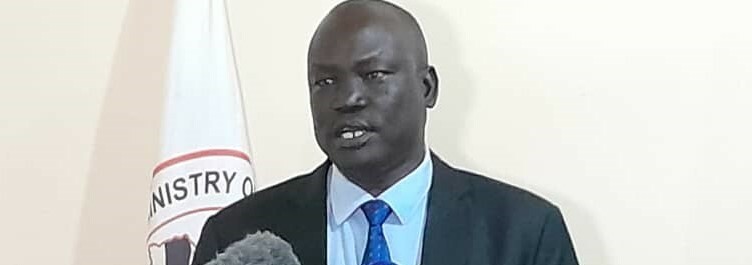South Sudan’s Ministry of Humanitarian Affairs has requested over 4 million US dollars to respond to the influx of returnees and refugees fleeing conflict in Sudan, a senior official said.
Since the outbreak of the fighting on 15 April, over 32,500 people have been registered crossing the border from Sudan into South Sudan, according to official reports.
The real numbers are likely to be higher as some people entered the country without registration, with the average number of people arriving daily recorded at 3,500 individuals.
Most of those arriving are South Sudanese returning home as well as Sudanese seeking asylum, Eritrean refugees, Kenyan and Somali migrants, and other third-country nationals.
Speaking to reporters after the cabinet meeting in Juba on Friday, Information Minister Michael Makuei said Humanitarian Affairs Minister Albino Akol Atak has already received one million US dollars and now seeks more than 4 million US dollars to provide services to the returnees and refugees.
“In the meantime, the minister was given a sum of 1 million US dollars which was released from the office of the president and that amount has already been handed over. And at present, the need is high, and the congestion in Paloch and Renk is very high. So the minister is also appealing for more funds so that they can immediately relocate those people that have assembled in those areas,” Makuei said.
Makuei, who is also the government spokesman, said there is an urgent need to relocate the returnees from Paloch and Renk towns in Upper Nile State to curb congestion and outbreak of diseases.
“With the congestion, there is a likelihood of an outbreak of other uncalled for diseases, so the minister is requesting the government because we had approved a sum of 5.3 million US dollars. So he is requesting the release of the other 4.3 million US dollars so that they can continue with the mission,” Makuei explained.
Makuei said the cabinet called on the minister of humanitarian affairs to collaborate with the United Nations and aid agencies to deliver aid to the people.
Reacting to the news, Ter Manyang Gatwech, a South Sudanese observer and civil society activist, called for transparency and accountability in the use of the funds released for humanitarian response.
Speaking to Radio Tamazuj, Manyang, who is the chairperson of the Civil Society Coalition on Defense of Civic Space (CSCDC), said: “I do remember when the former minister for humanitarian affairs received 10 million US dollars for flood victims, nobody knows until now how the money was used. So this is a serious concern.”
“For the new minister to ask for money now is not bad because we know there is a crisis in Sudan. So, South Sudan has an obligation to respond to the crisis, but our concern is the issue of accountability and transparency,” he said.
“Now nobody will ensure that this money is spent on the objective or the reason why it was requested for. The previous experience showed that there is always corruption when funds are released for crisis response. Nobody is sure whether this money will reach the needy people or not,” he concluded.




